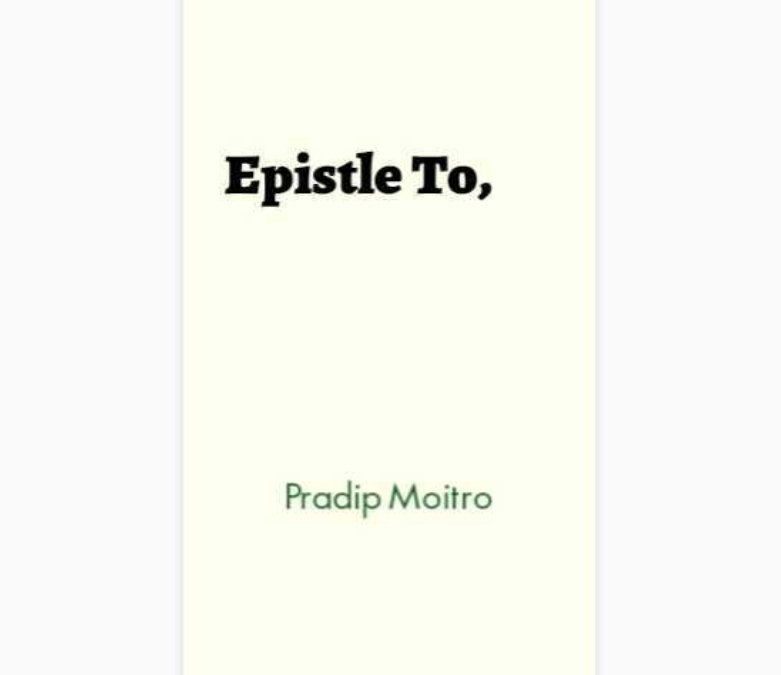(Continued.., Part 2)
*Epistle to* ..
(Musings of a St. Stephanian)
I read widely, beyond the requirements of the prescribed syllabus. I read a wide variety of subjects: art, architecture, music, fashion, history, religions of the world, anthropology, psychology, physiology, ancient civilisation and British journals and magazines I read in a fit of fury while my classmates crammed a few texts and regurgitated the undigested fare onto the examination papers. My model was Marsilio Ficino, who, in the fifteenth century, during the course of a single lecture at the Plato Academy at Florence, had quoted from memory all the known writers of antiquity.
The English professor took to me and enthusiastically introduced me to the two greatest British ambassadors. I spent my money on books, on British magazines and on performances on visiting foreign cultural troupes. And I spent a good deal on the magnificent Scottish and English tweeds which the English members of the faculty brought back for me after their summer trip to England.
I developed an educated taste for Western classical music and saw every ballet on the screen because no live ballets were around. I pined for the day when I would stand before the famous paintings in their original habitats – in the museums and art galleries of Europe. I needed someone to indicate to me some directions, to lead me the kindly light. I was too shy about asking the professors. So I hewed out a path for myself. But I discovered that there is so much enterprise and thrill in walking alone and discovering it all be oneself.
Then death came to the family. The one man I was beginning to know and appreciate was swept away on the tide of silence. That loss hit me hard; cut me too near the bones. At a time when I felt numbed by the death and was still in mourning, still grieving inwardly, the girl of my late adolescence boldly strode into my life. I had never expected to see her. She took me by surprise. She said I was the only one she ever wanted, the only man around whom she wove all her dreams and desires. Her voice was tremulous and her eyes were downcast when she said those words. Later, much later, I felt in the marrow of my bones why Spaniards look upon love and death as inseparable.
On the one hand, vast emptiness vaulted over my mind, whenever I sat down over a book of my choice, my mind drifted away – far away into the spheres. I felt fate had dealt me a nasty hand. And looking at the starlit sky I pondered over Pascal’s agonised words, “The eternal silence of these infinite spheres frightens me”. The spheres did not offer any help. I had to descend into the depths of myself to find help. Outwardly, I was like the Spartan boy who kept smiling while the dogs gnawed his flesh.
In the midst of this emptiness, in the face of the eternal silence of spheres, her presence brought in a measure of fullness. She was the candle in the impenetrable darkness of a tempest-torn night. She wrote me beautiful letters, in a steady stream. When I went back to college no other girl, however beautiful drew me. I saw only one girl in every girl, I saw her everywhere she was not. Some of her letters had the ring of Heloise’s letters to Abelard, without any religious overtones. I teased her by comparing her to the Mexican nun, Sor Juana Inez de la Cruz, who poured the conflicts of her heart out in poetry bordering on the erotic. Her letters were more beautiful than Milena’s letters to Kafka or that fiery Latina Manuela Saenz’s letter to Simon Bolivar.
At times I felt transported, lifter far above the everydayness of life. Her letters opened up to me a part of myself that so far lay undiscovered. I realised for the first time the full import of Beethoven’s conducting in Vienna the maiden recital of his Ninth Symphony and Choral Ode to Joy. Carolene Unger was the mezzo soprano. When Beethoven had finished conducting he stood there with his back turned to the audience. The audience stood up in thunderous applause; but Beethoven did not turn to face the audience and acknowledge the tribute. He had gone totally deaf by this time. Caroline Unger tugged at his coattail to turn him around. The audience instantly realised that the great man has gone deaf, and it wept uncontrollably. To this day, I cannot listen to the Ninth Symphony and the Choral Ode to Joy, both composed by the genius of a deaf man, without taking my handkerchief to me eyes.
(To be continued…)
About the author
Pradip Moitro (1939 – 2012) was born in Bangladesh (now). He had his studies at Kolkata suburb, St. Stephens, Delhi and Oxford. He later rose to become an in -house polymath of White House and became a speech writer of an US President in the last quarter of 20th century. He breathed his last at Oxford.


,,??
Thank you.